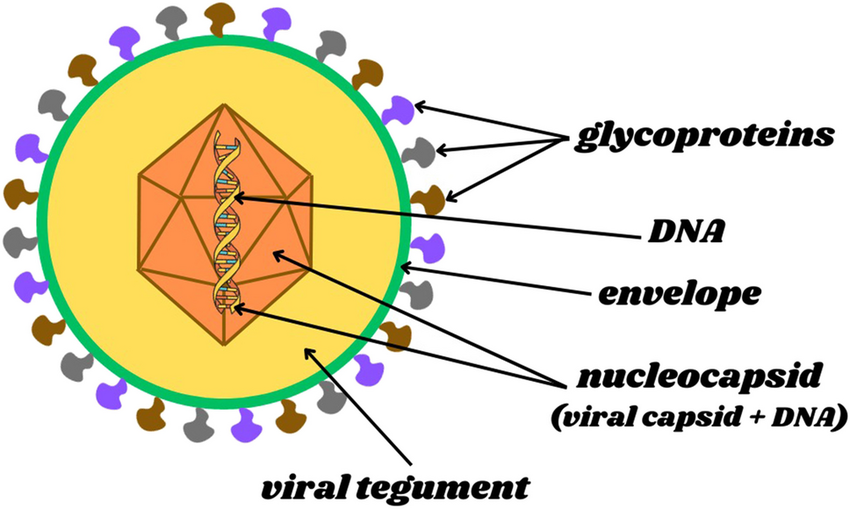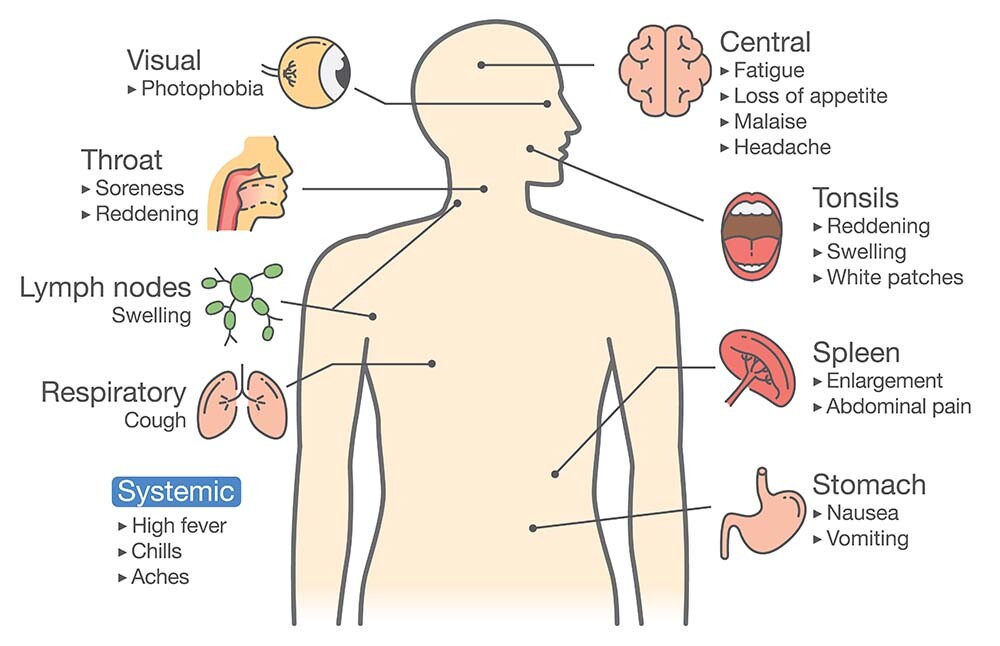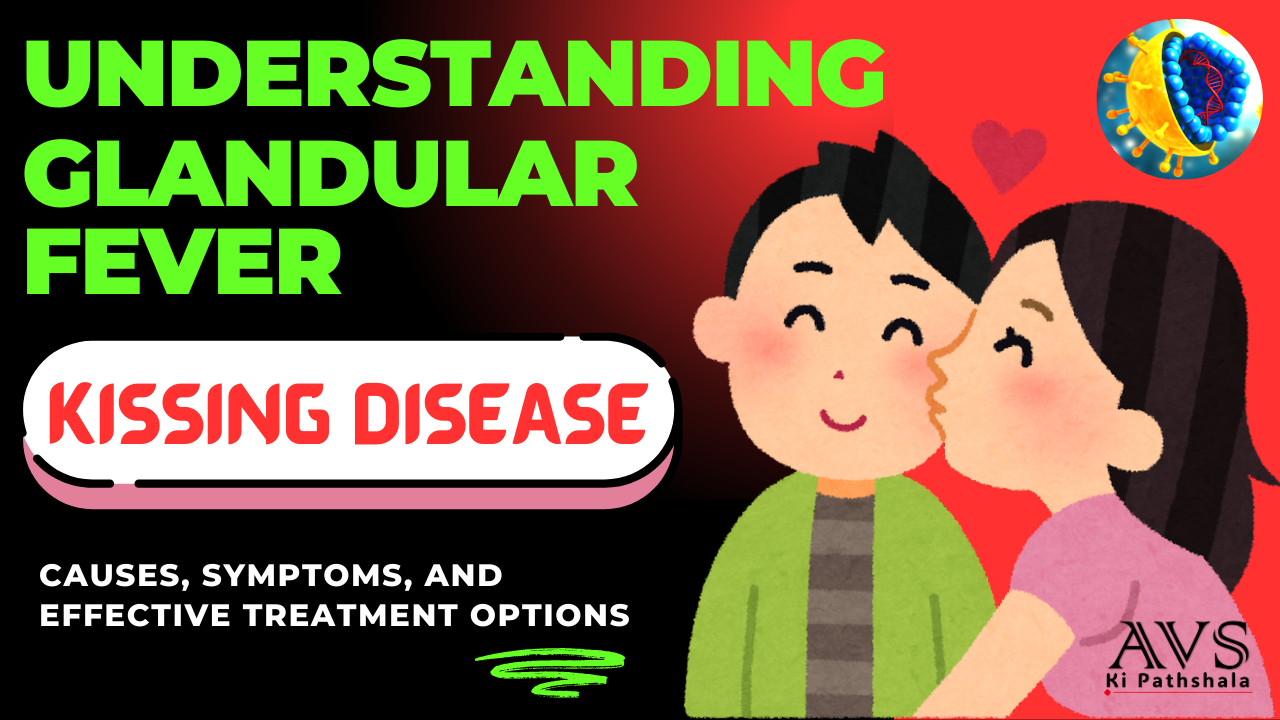Understanding Glandular Fever – Kissing Disease
Understanding glandular fever, commonly known as the “kissing disease,” is crucial for recognizing its symptoms, causes, and effective treatment options, especially as it frequently affects teenagers and young adults through close contact.
Glandular fever, also known as infectious mononucleosis, is a common viral illness caused by the Epstein-Barr virus (EBV). Typically affecting teenagers and young adults, this contagious condition is often spread through saliva, which is why it’s sometimes referred to as the “kissing disease.” Glandular fever can lead to a range of symptoms including fever, fatigue, sore throat, and swollen lymph nodes, which may last for several weeks or even months. Understanding the causes, symptoms, and treatment options is essential for both prevention and effective management of this illness.
Nowadays it has become very common among boys and girls to go to clubs and party with strangers. People reach clubs to celebrate small and big joys of life. 22-year-old Neve McRavey from Scotland did the same. When Neve from Scotland graduated, she went to a club to celebrate it.
Neve had completed her studies from the University of Strathclyde. In the club, Neve met a stranger with whom she started dancing. Both of them got so carried away with emotions on the dance floor that they kissed. The matter ended there. Neve went to her home and slept after enjoying the party. But when she woke up the next day, everything was not normal.
According to The Sun, Neve was having severe pain in her throat. She thought maybe her tonsils were hurting, which had happened before. But over the next 24 hours her symptoms got worse. Spittle started getting stuck in her throat. Then she decided to go to the doctor.
The doctor gave her antibiotics, but the medicines did not work either. Due to this she went to a big hospital. After examination there, it was found that she was suffering from glandular fever. A pipe was inserted in her arteries so that she could be hydrated.
Glandular fever is a type of viral infection that is usually caused by the Epstein-Barr virus. This virus spreads from one person to another through saliva. It usually occurs in young people.
What is Glandular fever?
Glandular fever, also known as infectious mononucleosis or simply “mono,” is a viral infection most commonly caused by the Epstein-Barr virus (EBV). It primarily spreads through saliva, which is why it is sometimes called the “kissing disease.” The condition mainly affects teenagers and young adults but can occur at any age.

Symptoms of Glandular Fever:
- Fatigue (can last for weeks or months)
- Sore throat
- Fever
- Swollen lymph nodes (especially in the neck and armpits)
- Swollen tonsils
- Headache
- Muscle aches
- Loss of appetite
- Rash (in some cases)

Diagnosis and Treatment:
Diagnosis is usually based on symptoms, blood tests, and sometimes throat swabs. There is no specific antiviral treatment for glandular fever, but symptoms are managed with:
- Rest
- Hydration
- Pain relievers (like ibuprofen or paracetamol)
- Avoiding physical exertion (to prevent spleen injury, as the spleen may enlarge)
Most people recover within a few weeks, though fatigue can persist longer.
Difference between Normal Fever and Glandular Fever
The key difference between normal fever (a general symptom of many illnesses) and glandular fever (a specific viral illness) lies in the underlying causes, associated symptoms, and duration:
1. Cause:
Normal Fever: A fever is a rise in body temperature, typically due to various infections (viral, bacterial, or fungal), inflammation, or other underlying health conditions.
Glandular Fever: Caused primarily by the Epstein-Barr virus (EBV), a type of viral infection. It’s specific to this virus and primarily affects the immune system and lymphatic tissues.
2. Duration:
Normal Fever: Typically resolves in a few days to a week, depending on the underlying cause and treatment.
Glandular Fever: Can last much longer. While some symptoms like fever may improve in a couple of weeks, fatigue and general weakness can persist for weeks or even months.
3. Contagion:
Normal Fever: Varies based on the cause. For example, a viral infection like the flu can be contagious, while a fever from inflammation or non-infectious causes is not.
Glandular Fever: Highly contagious through saliva (hence the nickname “kissing disease”). It can also spread through coughing, sharing drinks, or close personal contact.
Advice for Glandular Fever
If you have glandular fever (infectious mononucleosis), here are some important tips to manage the condition and promote recovery:
1. Rest
- Get plenty of rest. Fatigue can be severe and may last for weeks or even months.
- Avoid overexerting yourself, especially during the early stages of the illness, to prevent worsening symptoms.
2. Stay Hydrated
- Drink plenty of fluids to avoid dehydration, especially if you have a fever.
- Water, herbal teas, and clear broths are good options.
3. Pain and Fever Relief
- Take over-the-counter pain relievers like paracetamol or ibuprofen to help reduce fever, throat pain, and body aches.
- Avoid aspirin, particularly in children and teens, as it may increase the risk of Reye’s syndrome.
4. Soothe a Sore Throat
- Gargle with warm salt water to relieve throat pain.
- Use throat lozenges or sprays for temporary relief.
- Avoid smoking and irritating substances, as they can aggravate the sore throat.
5. Avoid Alcohol
- Glandular fever can temporarily affect liver function, so it’s best to avoid alcohol during recovery, as it can further strain the liver.
6. Avoid Spreading the Virus
- Glandular fever spreads through saliva. To prevent spreading it to others, avoid kissing, sharing drinks, or utensils while you are contagious.
In conclusion, while glandular fever can be a challenging illness due to its prolonged recovery period and the risk of complications, most people recover fully with proper care and rest. Increased awareness about its transmission and early symptom recognition can help in reducing the spread of the virus. As more research emerges on Epstein-Barr virus-related conditions, early intervention strategies will play a crucial role in managing glandular fever effectively. Always consult a healthcare professional if you suspect an infection to ensure timely diagnosis and treatment.
विज्ञान से जुड़ी और भी बेहतरीन जानकारी को प्राप्त करने के लिए आप हमसे हमारे YouTube चैनल पर भी जुड़ सकते हैं। YouTube पर जुड़ने के लिए नीचे दिए गए लिंक पर क्लिक करें।



